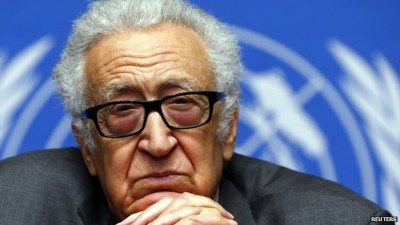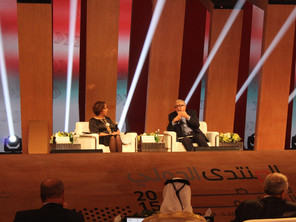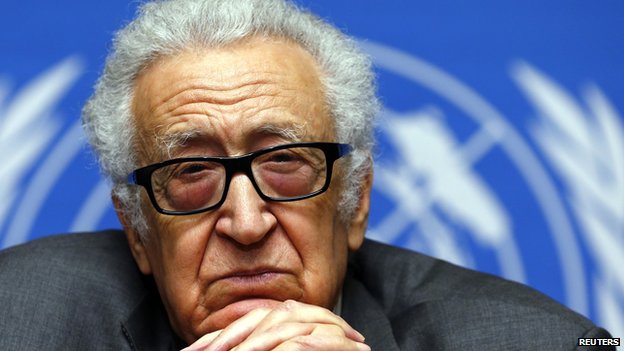 Former United Nations diplomat Lakhdar Brahimi said on Monday the United States is to blame for the current situation in Iraq. Brahimi also called on Monday for Iran to become involved in negotiations surrounding Syria.
Former United Nations diplomat Lakhdar Brahimi said on Monday the United States is to blame for the current situation in Iraq. Brahimi also called on Monday for Iran to become involved in negotiations surrounding Syria.
Speaking at the first ever International Government Communication Forum (IGCF) 2015, held in Sharjah, UAE, Brahimi singled out the U.S.-led invasion of Iraq in 2003, for ‘providing an environment that allowed insurgency to grow in Iraq, helping a group like the Islamic State of Iraq and Syria (ISIS) to flourish.’
“The U.S. is to be blamed,” Brahimi said. “It created conditions that allowed ISIS to grow.”
The Algerian politician – whose diplomatic career spans four decades – also said Iran needed to be part of a political solution in Syria and Iraq, given the “regional power” it holds in both countries.
“Iran is part of the problem, and a member of the problem has to be part of the solution, even if other parties think otherwise,” Brahami stated.
Reflecting on his U.N. peace mission in Syria, Brahimi said he always liked to look back at “tasks that weren’t carried out properly.”
Brahimi announced that he was stepping down from his role as the United Nations and Arab League Special Envoy to Syria in May 2014 after failing to secure a peaceful solution to the ongoing civil war. He initially took over the mission in 2012 from former U.N. chief Kofi Annan.
c
“I said more than once, people in the region are calling for a real change not a cosmetic one. Governments that don’t want to change will be victims of change.”
He said the Syrian government was to be blamed for allowing the crisis in its country spiraling out of control.
“The Syrian government did not react to demands of change,” which began peacefully in Raqqa, the diplomat recalled, when people were calling for “freedom and dignity”.
“Governments need to be held accountable for what is going on,” he said speaking of the Syria crisis.
When asked if the U.N. was still willing to secure a resolution to the Syrian crisis, Brahimi said: “the region has big divisions [over Syria] that are not helping the Syrian people.”
“The U.N. has a big moral power, but it cannot do anything unless it gets the support of its members.”
On Libya, he said an indecisive stance among some North African countries – including Tunisia and Algeria – over the recent Egyptian airstrikes on Libya was due to the ongoing debate over whether an external force should intervene in the war-torn country.
“The issue [in Libya] is on the use of external forces and whether it helps or not,” Brahimi explained.
He said the use of force in a “weak country” like Libya “will not achieve much”.

Brahimi said Egypt’s decision to launch military airstrikes against Libya following the release of video of Egyptian Christian workers being beheaded in Derna was “not easy and had to be thought about clearly.”
Meanwhile, Brahimi also underlined the importance of communication between governments and people.
“The capacity of all Arab governments without exception to reach out to their people and the external world is disappointing,” he added.
“We are almost incapable of communicating with our people.”
This year’s IGCF is hosting several prominent leaders and decision makers from around the world, including former Lebanese President Michel Suleiman and Former Australian Prime Minister Julia Gillard.
The forum runs Feb. 22 to Feb. 23.
AL ARABIYA


Leave a Reply
You must be logged in to post a comment.